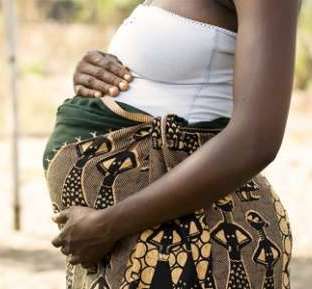Re-double efforts to reduce maternal and neo-natal child health
 Mrs Tina Mensah, the Deputy Minister of Health, has challenged health service providers, programme implementors, policy makers and all stakeholders to re-double their efforts towards the reduction of maternal and neo-natal child mortality.
Mrs Tina Mensah, the Deputy Minister of Health, has challenged health service providers, programme implementors, policy makers and all stakeholders to re-double their efforts towards the reduction of maternal and neo-natal child mortality.
She declared a “Zero tolerance” to maternal mortality, saying it was unacceptable for any woman to die through childbirth or other related complicationsin an era where several interventions and numerous policies had been put in place to ensure their safety.
She argued that with Ghana recordinga high maternal mortality rate of 319 per 100,000 Live Births (LB) and national institutionalrates of 151 per 100,000 LB, there was the need to drastically change the way things had been done in the past, and improve upon the timing of interventions.
Mrs Mensah who was addressing the opening of a colloquium in Accra on Tuesday, to commemorate the African Union’s (AU) initiative on the Campaign on Accelerated Reduction of Maternal Mortality in Africa (CARMMA), called for responsible leadership to ensure appropriate oversight and supervision over those put into management positions to deliver on their mandate.
The colloquium which was organised by the Ghana Health Service (GHS)on the theme: “Intensifying MNCH in Africa; Drawing on 8 years of CARMMA”, aimed at creating a platform for fair discussions between policy makers, implementors, health partners and stakeholders on how to combine efforts and resources available to achieve the desired outcomes.
Mrs Mensah said she was convinced that the problems affecting progress towards the achievement of quality Maternal and Neo-natal Child Health (MNCH) could be addressed if “we focus our efforts and channel our resources appropriately on this important issue”, which would require commitment on the part of all those concerned.
Government has over the years, introduced several initiatives and strategies, and injected funds into the health systems, mostly with the help of development partners to reduce maternal deaths at least at the health facilities with minimal success.
“We know the challenges and factors influencing maternal mortality in our country and for that matter Africa in general. We know all the approaches and interventions that work. We also have all the structures and systems to enable us bring the situation under control”,yet resultshave not been as expected.
The Deputy Health Minister cited the fact that althoughavailable data indicated that 97 per cent of all pregnant women received Antenatal Care (ANC), only 73 per cent of births were delivered at health facilities and were attended to by skilled health personnel, leaving a dropout rate of about 25 per cent.
“ I am reliably informed that the factors that prevented the 25 per cent from reaching the health facilities are beyond the health service which pre-suppose that responsibility for maternal health is not the preserve of the health sector alone but society at large”, she said.
She cited some barriers such as the poor health seeking behaviour, issues of geographical and financial access, poor attitudes of health staff, weak family support and poor communication have contributed and conspired to prevent mothers and children from receiving appropriate health care.
Other factors, she said include; the low risk perception of mothers during pregnancy and delivery and the unpredictability of labour making planning for delivery difficult.
Mrs Mensah said there was the need for intensified advocacy for strong national commitment for maternity care, identify areas for technical support to strengthen implementation actions for the reduction of maternal mortality, define milestones for theimplementors to reduce the deaths and ensure regular monitoring of progress being made so far.
Dr Margaret Agama-Anyetei, the Head of Division Health, Population and Nutrition of the Department of Social Affairs at the African Union (AU) Commission, thanked all the participants including;the UNFPA’s Regional Management Team from West and Central Africa.
He said CARMMA, had been a statutory event on the calendar of the AU since it was initiated in 2009 on the theme: “Africa Cares: No Woman should Die while giving Life”,after the Maputo Plan of Action campaign.
The campaign, she said was to accelerate the availability and use of universally accessible quality services including; those related to sexual and reproductive health that were critical to the reduction of maternal and child mortality, and focusing on developing more strategies and plans to ensure coordinated and effective application of existing plans.
Source: GNA
